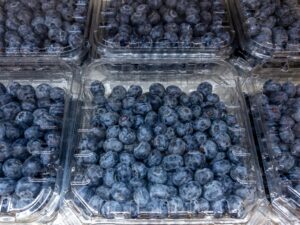At first glance, the humble clamshell packaging might not seem revolutionary, but it’s at the heart of one of California’s greatest environmental success stories. Clear, convenient, tamper-proof, and endlessly recyclable, this packaging innovation has transformed the way we grow, ship, sell, and enjoy fresh produce.
In 2022, California proudly enacted Senate Bill 54, landmark legislation crafted to significantly reduce plastic pollution and promote smarter, sustainable packaging practices. Remarkably, SB 54 achieved broad bipartisan support, uniting Democrats, Republicans, environmental organizations, and the agriculture sector behind a common, forward-thinking solution. Such collaboration is rare and worth protecting.
Berry growers across the Western Hemisphere, who have long championed sustainable practices, enthusiastically rose to meet the challenge. They moved away from problematic labeling, incorporated packaging with over 50% recycled content, and developed a genuinely effective closed-loop recycling system using PET, one of the world’s most recyclable plastics.
Yet, less than two years later, the carefully balanced regulations designed to implement SB 54 are under threat. CalRecycle’s proposed draft regulations overlook the specific needs of fresh produce and fail to recognize the significant sustainability advances already made.
Let’s be clear: expecting berry growers, whether small, medium, or large, to pack and ship delicate produce in paper bags or similar alternatives is impractical and harmful. Paper packaging leads to crushed, damaged, and spoiled berries. This might work for the casual weekend farmer selling produce at a roadside stand, but it’s entirely unworkable for the vast majority of our industry.
Additionally, mandating paper packaging would require cutting down more than 10,000 acres of trees yearly, creating a new environmental crisis. Paper cannot maintain integrity in cold storage, fails to preserve freshness, increases food waste, and drives up consumer costs. This isn’t progress. It’s regression.
France and Canada both experimented with banning clamshells, only to swiftly reverse their decisions upon realizing the severe environmental and supply-chain repercussions. Consumers recognize these benefits, too: clamshells are convenient and allow shoppers to inspect produce,
ensuring quality and freshness, ultimately reducing food waste.
We don’t need to dismantle and rebuild what already works exceptionally well. California’s climate goals are crucial, but we must approach them intelligently. SB 54, enacted just two years ago, isn’t the problem. Let’s focus our energy on fixing what’s genuinely broken, not sabotaging an environmental success story that already delivers tangible results.


